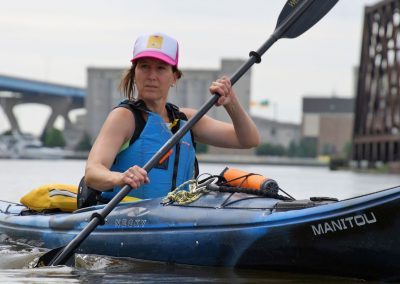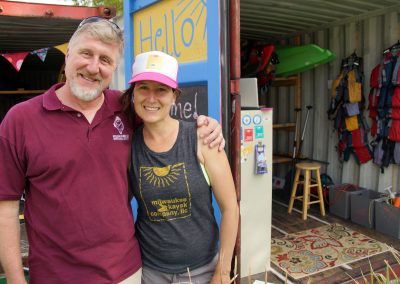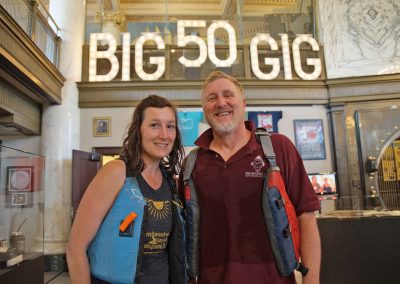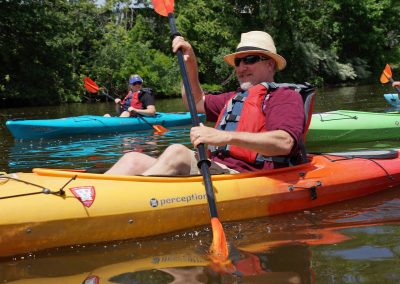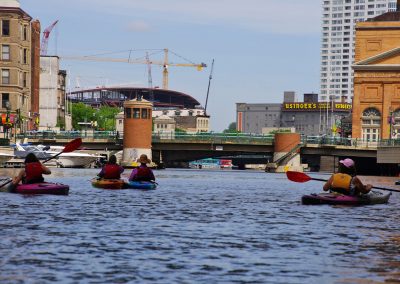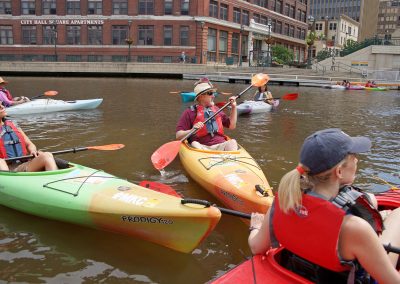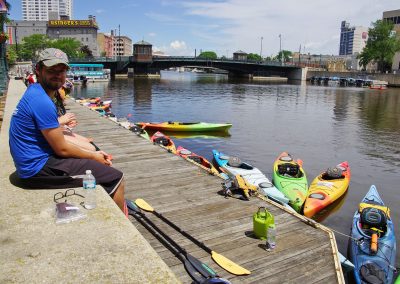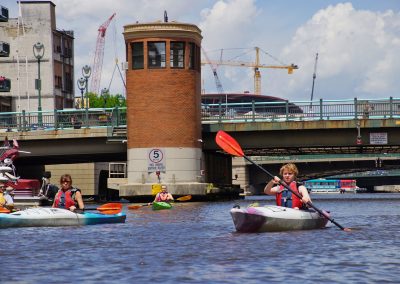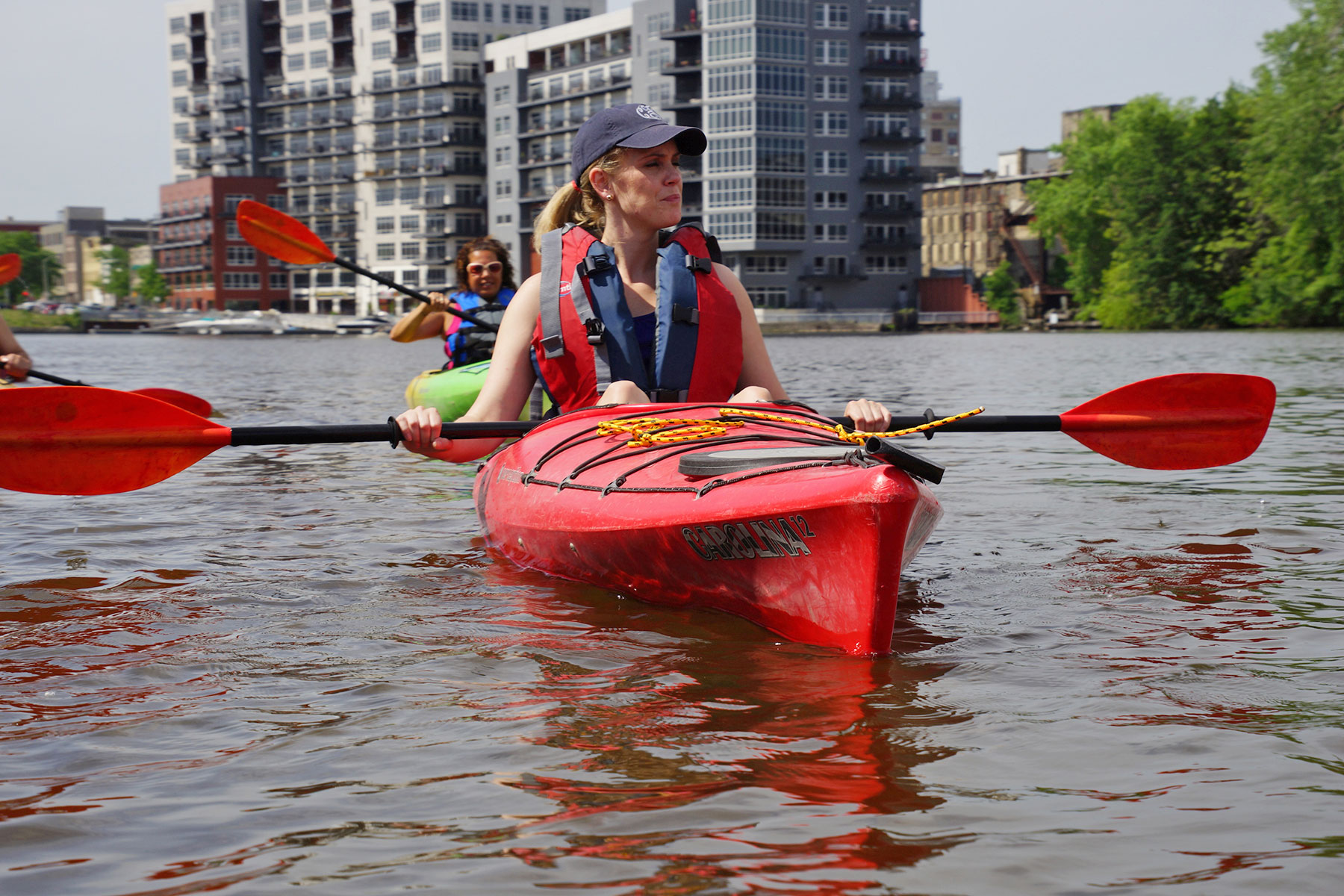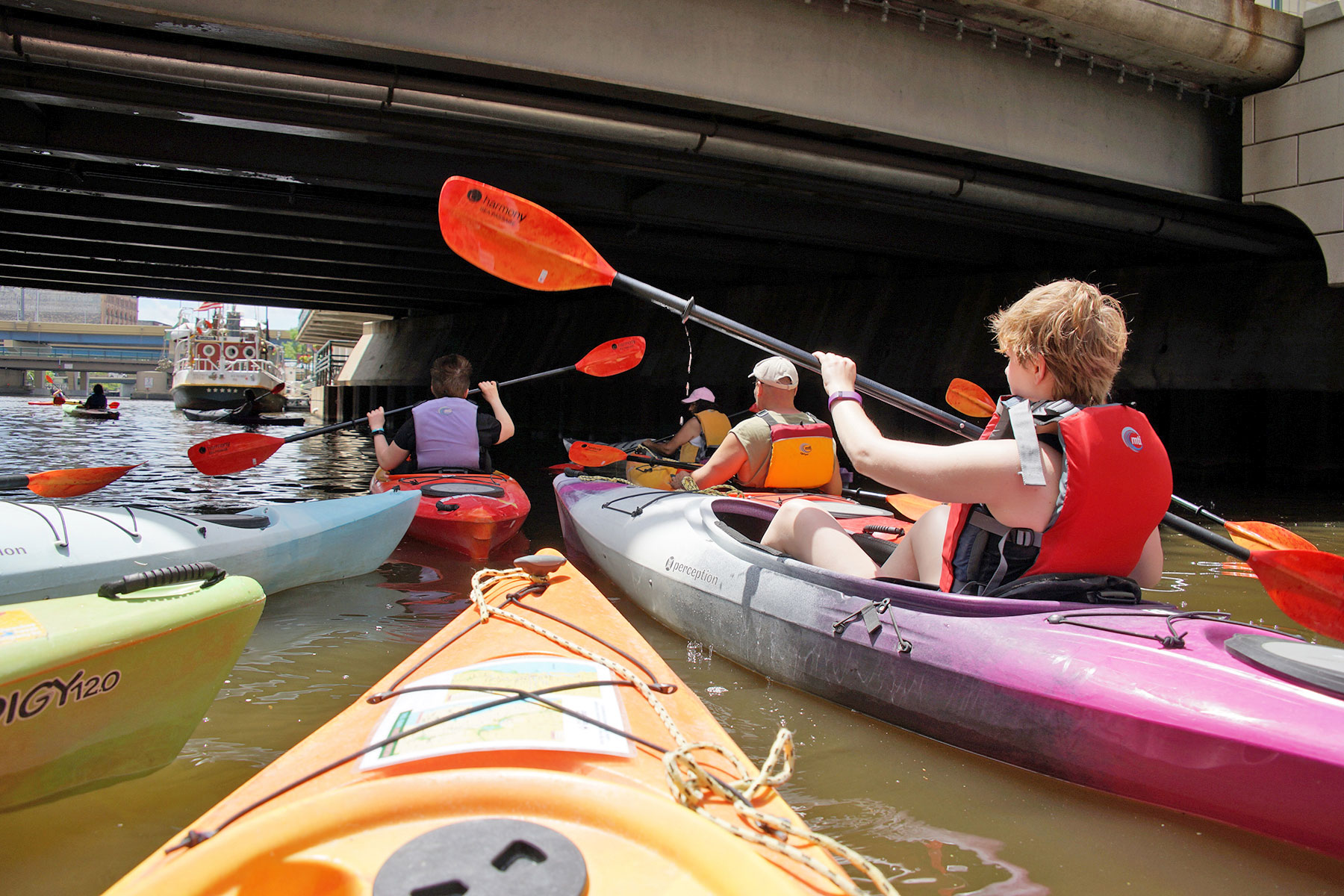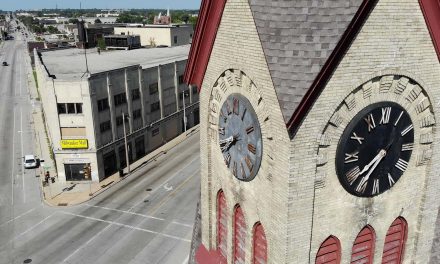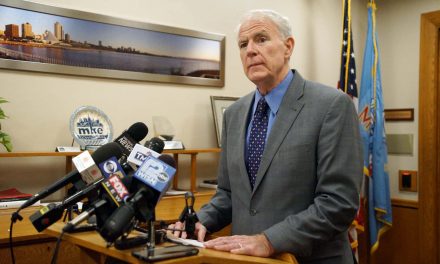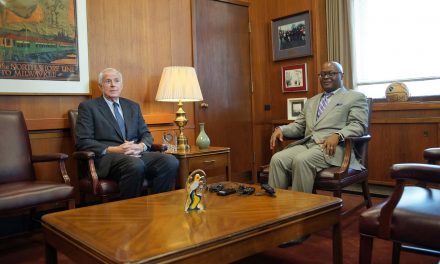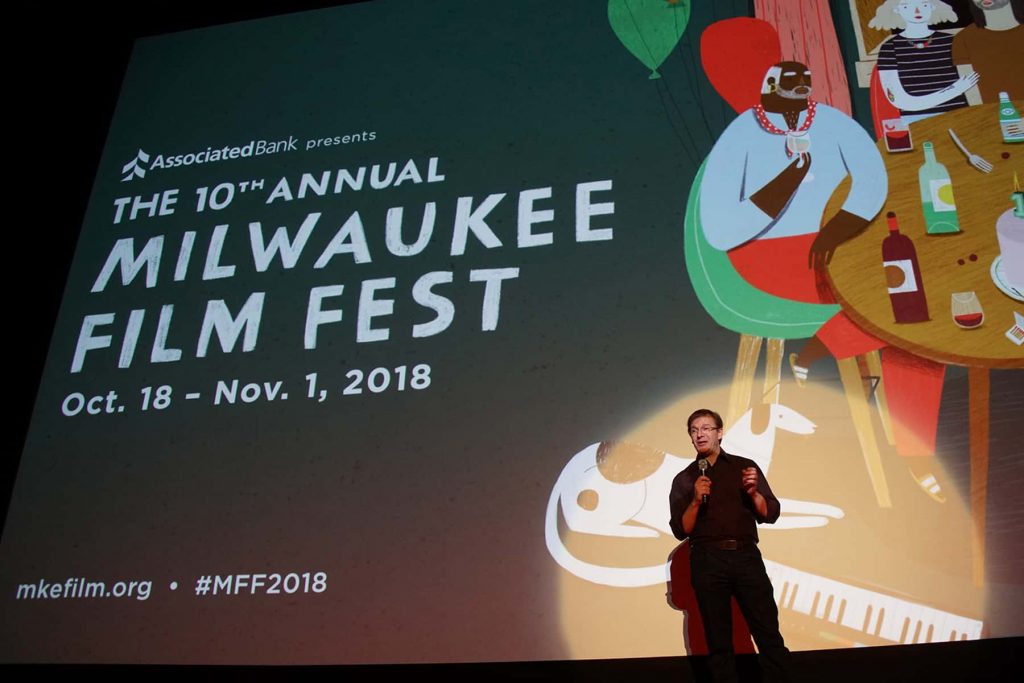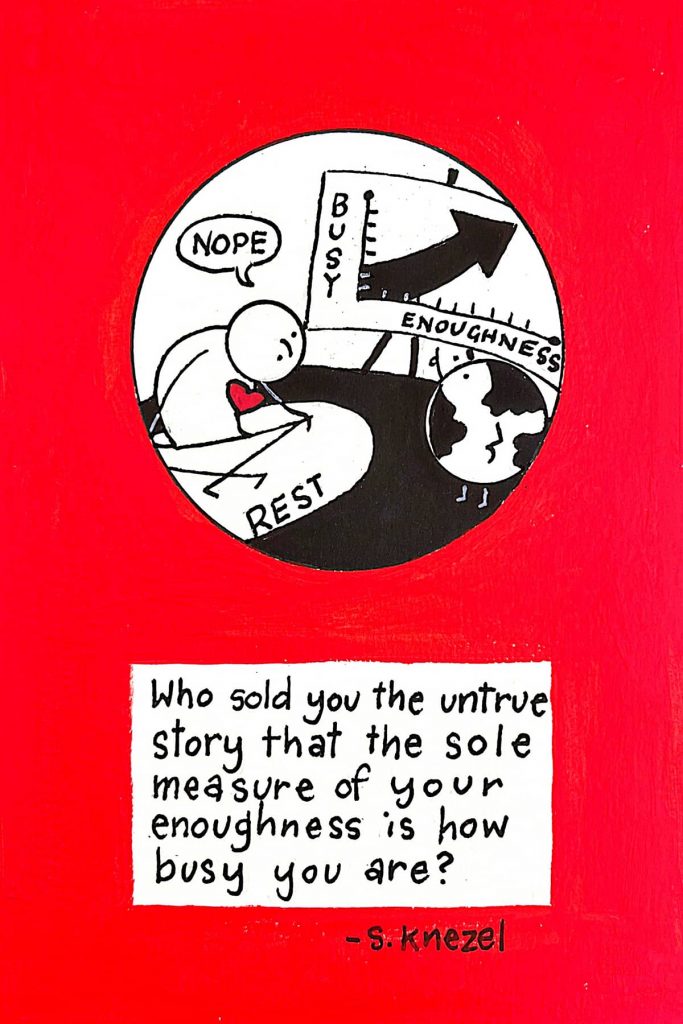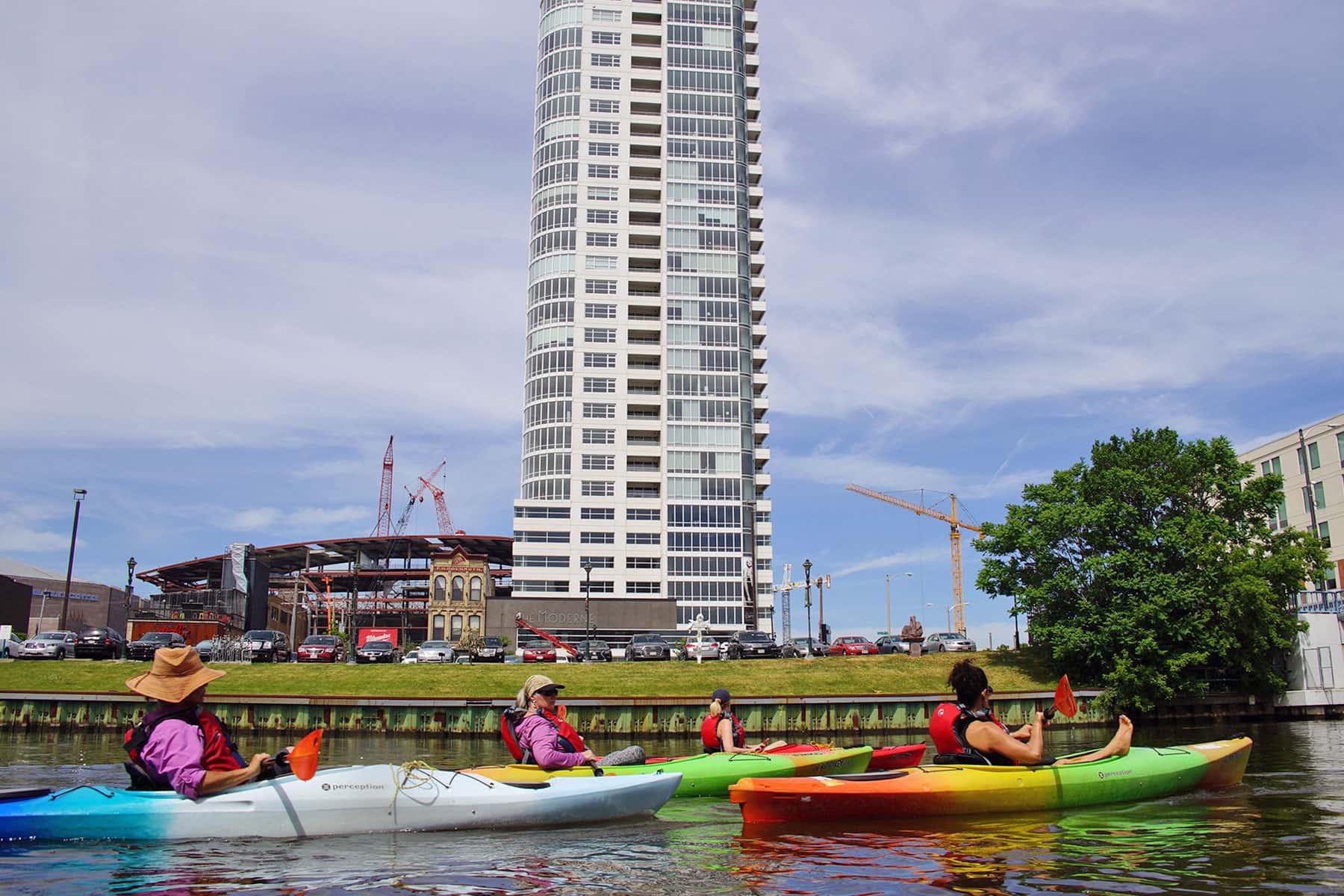
While efforts to utilize the Milwaukee River as a recreation destination have finally gained momentum in recent years, going near the river was unthinkable even a generation ago. The river had helped establish the city, and allowed it to prosper economically. But the industrial pollution and sewage diversion took its toll on the precious resource.
The Milwaukee River is now what city planners envisioned over a century ago, a European-style backyard for residents to enjoy. Visitors and locals have long been able to participate city walking tours that highlight the landmark architecture downtown. In its second year, the Milwaukee River History Tour offers a unique view of the city from the waterway that allowed a small fur trading post to become a metropolis.
Steve Schaffer, assistant archivist at the Milwaukee County Historical Society (MCHS), guided groups by kayak through downtown, exploring the history, famous names, bridges, and the structures that made Milwaukee.
“The most important thing I want people to take away from the tour is an understanding of the unique confluence of the Milwaukee, Kinnickinnic, and Menomonee Rivers, and the impact that these three rivers have had on Milwaukee’s development,” said Schaffer. “As they paddle slowly on the now, calm Milwaukee River, I want kayakers to appreciate how active commerce was on a river crowded with freighters, passenger steamers, tug boats, and barges.”
Located in the Harbor District, the Milwaukee Kayak Company’s founder Beth Handle had a background with the river and its history. But she wanted to expand her tour program and felt MCHS was a perfect match. The partnership also supports the nonprofit’s work to preserve local history.
“Last year, we offered three History Tours and this year we are offering five History Tours,” said Handle. “These trips are also a fundraiser for the MCHS, which makes them even more impactful. I’m grateful to be able to support their mission and great work.”

